Nico - Nico
by Jon Rogers
published: 27 / 8 / 2012
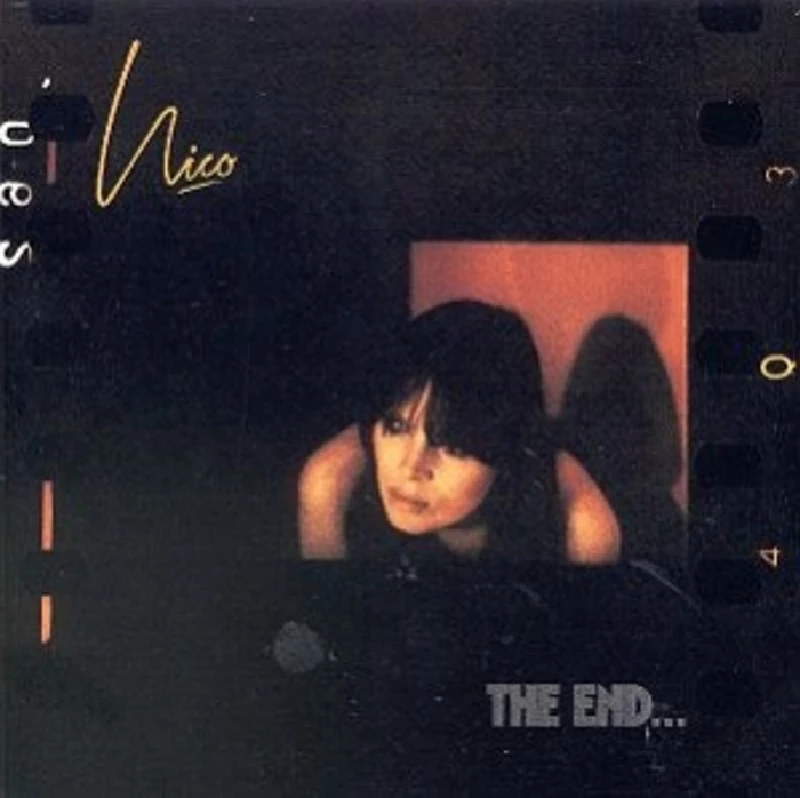
intro
Jon Rogers examines the remarkable history behind Nico's 1974 fourth album album 'The End', which about to be re-released was recorded in tribute to her late lover the Doors' Jim Morrison and also was inspired in part by the notorious German terrorist group, the Baader-Meinhof gang
Nico had a brief affair with Doors singer Jim Morrison in July 1967 whilst she was staying at the Castle in Los Angeles, the rented home where the Velvet Underground had stayed during their ill-fated trip to the west coast the previous year. Morrison had recently become a major rock star thanks to 'Light My Fire' becoming a number one hit in the States. The pair had been introduced to one another by publicist Danny Fields. Writing in 'The Age of Rock 2', an anthology of writing on rock 'n' roll, Fields says: "It was presumptuous of me, but I thought it would be interesting to see what happened. Nico was staying at the famous Rock Castle in the Hollywood Hills, and I brought Morrison up there to meet her. Edie Sedgwick was staying there too, and Dino Valente [soon to be the frontman of Quicksilver Messenger Service] and me, quite a cast. Morrison and Nico had this wonderfully strange affair, which consisted of the two of them standing in adjacent stone doorways of this false castle, and staring at the floor in front of them, or staring at the same spot on the floor, I guess communicating via reflections off the stone. An entire afternoon and evening passed and all they did was shift doorways and start staring at the floor again. The whole thing had a sort of weird ending, but I don't think I'll go into that." Fields is more forthcoming in the book 'Break On Through: the Life and Death of Jim Morrison' by James Riordan and Jerry Prochnicky. "They were like two cats. They watched each other's movements, followed each other around the house, but did not say one word at all," he recalls, until the early hours of the morning. "I was in my room when I looked out of my window into the Spanish-style courtyard. Jim and Nico were standing there under the full moon in the middle of the fountain. Jim was pulling Nico's hair and she was screaming. He never said anything. He just kept pulling her hair. Suddenly he ran into the house and Nico in her deep voice just stood there in the water sobbing. I had just recovered from that scene when I glanced up, and there was Jim - stark naked - dancing along the edge of the parapet." The Doors' drummer John Densmore though puts Morrison and Nico's first encounter in March: "We were staying at the dumpy Great Northern Hotel on 57th Street. Convenient location, but the place smelled of old people. I was rooming right next to Jim, which turned out to be better than TV. Not that I was the drinking-glass-to-the-wall type, but the racket that was coming from next door one night was hard to miss. Jim brought Nico, the Velvet Underground's famous German vamp, back to his hotel room, and I'd never heard such a crashing around. It sounded as if they were beating the shit out of each other. I was worried but never dared to ask what happened. Nico looked okay the next day, so I let it slide." The pair see each other over the summer and take trips out into the desert and take drugs together, but it is little more than a fling. Morrison is focused on making the Doors a success, and concentrates on touring and recording. Plus he already has a long term partner in Pamela Courson who will be is 'main' girlfriend until his death in 1971. Morrison's impact on Nico had a lasting effect, certainly longer than red hair dye she had used knowing Morrison liked redheads. Morrison is the one who encourages her to write her own songs, introducing her to the English Romantic poets such as William Blake, Shelley and Coleridge and advises her to take inspiration from her dreams and soon after writes 'Lawn of Dawns' which will appear on 'The Marble Index'. She would also often refer to Morrison as her "soul brother", according to Richard Witts' biography and quotes her as saying: "I think he was the first man I met who was not afraid of me in some way. We were very similar, like brother and sister. Our spirits are similar. We were the same height and the same age, almost." [In fact five years separated them.] They weren't quite like brother and sister that much though as Nico would confide in an interview: "Jim Morrison has the best sex I ever had inside me." The most obvious influence was that she would cover the Doors' song 'The End' from their debut album, an apocalyptic song, drenched in Oedipal lust and murder. Never mind name her fourth solo album after it as a way of marking Morrison's death and making it something of a memorial to him. In fact, fucked up neatly summarises the state Nico and her friend, producer and former band member in the Velvet Underground, John Cale were in at the time of recording 'The End' in 1993. Cale's marriage to Miss Cindy (formerly of the GTOs - aka Girls Together Outrageously) was disintegrating into rancour, bitterness and drug-fuelled vitriol, never mind his wife's promiscuity. In his autobiography 'What's Welsh for Zen?' Cale recalled those times in a Shepherd Bush basement: "Resentment and paranoia filled the days." And Nico wasn't much better, seemingly bitter at Cale for not getting her a record contract despite his efforts, suffering a paranoia no doubt caused by her own growing drug habit. "When I produced her fourth album, 'The End', she was angry with me all the time," confessed Cale in his autobiography even though he had been instrumental in getting her a one-off contract with his own label, Island. Interestingly though he adds that he tried to get her to record a version of 'Streets of Laredo', from the 1973 film 'Bang the Drum Slowly, starring Robert De Niro and Michael Moriarty, but apparently Nico retorted: "I don't do cowboy songs." The musicians assembled for the recordings at Sound Techniques were rather impressive - and along with Cale included Brian Eno and his former band mate in Roxy Music Phil Manzanera. The three had previously known and hung out with each other as friends and worked on Cale's album 'Fear' together. And not forgetting the famous concert at the Rainbow Theatre featuring Kevin Ayres, Nico, Cale and Eno that would result in the live album 'June 1st, 1974'. Now under contract to Island Nico had moved from the south of France to Twickenham, where she was the house guest of former Soft Machine drummer Robert Wyatt. As with 'The Marble Index' and 'Desertshore', 'The End' is full of Nico's trademark droning harmonium and her Wagnerian, Teutonic singing. Although still haunting and bleak, it wasn't quite as forbidding and dark as 'The Marble Index' but still a cold, wintry beauty. Eno added his own existential fear and trembling to the album, perhaps most notably the synthesizer shrieks at the start and end of 'Innocent and Vain'. David Sheppard indicates in his biography of Eno, 'On Some Faraway Beach', that Eno was to a large extent in awe of Nico and found her physically captivating, describing her as "hauntingly beautiful when the light struck her porcelain cheekbones." Although he was in awe, he was also impressed by her song writing - and she had been in the Velvet Underground after all, one of Eno's favourite bands. Never mind having acted in Fellini's 'La Dolce Vita', been a muse for both Bob Dylan and Andy Warhol and had affairs with Alain Delon, Brian Jones and Morrison and appeared in the fashion bible 'Vogue'. Despite his admiration for both Cale and Nico he admitted in a 'Creem' interview in September 1974 that he found them "challenging" to work with. "Working with them was of course interesting; both of them are very demanding people in a way - and so am I in another way. It was a very volatile situation and those are the ones that interest me in music. We weren't sitting around patting each other on the back saying 'groovy', 'let's blow together' - it was quite intense." While there were a few clashes between Cale and Eno, which Sheppard sees as being caused by competitive streak in the "two avant-rock alpha males" and the two would often infuriate each other they got on well together with Eno telling 'Sounds': "We occupy sufficiently different areas to get on really well without treading on each other's toes." The two of them nevertheless had a lot of fun together, often at the expense of unwitting taxi drivers. "We'd be in the back of a cab and our conversation would veer off into one area, knowing that the driver was listening to what we were saying, and we took full advantage of it," recalled Cale. "We got that down pat. We had a lot of fun doing that until I would break down when I couldn't keep a straight face any longer." Ever the musical theorists in the realm of the avant-garde Eno and Cale came up with a theory that they, along with Manzanera, Nico as well as the likes of Robert Fripp and Wyatt were making and dubbed it "les chevilles exotiques" ("the exotic ankles"). The name never really caught on. Nico, not really too bothered about any sort of theorising was much more interested in making a provocative act through her music, a stance influenced by her friendship with Andreas Baader, the leader of the notorious German terrorist group, the Baader-Meinhof gang and she had sheltered him in Paris. In her mind the rise of the urban guerrillas was the best thing to happen to Germany since the death of Hitler. She found the answer of what she could do in a dream, or so she claimed. In her narcoleptic state she saw herself as a child and was standing by a railway singing the national anthem when a train passed by full of soldiers who told her to be silent or they would kill her with a special drug. She ran to a cemetery and saw the name of her mother on a tombstone. A flag was mounted by the grave. She sang the national anthem and the flag melted. The soldiers were chasing her and as they ran closer she woke up. According to Nico, the version of the German national anthem was the one she knew as a child ["Deutschland, Deutschland, über alles"], which after the Second World War had been banned, but the new version had exactly the same melody. According to Nico, she realised "I should sing the forbidden words to expose the old sentiments behind the new one." The basic theme of Haydn's tune for the German national anthem, with variations, is present in five of the songs included on the album, each opening with the same three notes and also worked the theme into her interpretation of 'The End'. The inclusion of 'Das Lied der Deutschen' on the album, with the original lyrics, as well as performing it in concert, would certainly provide her with her desired 'provocative act'. The memory of Morrison is invoked in 'You Forgot to Answer', as she recalls the moment she last saw him, in a black car and the repetition of the line: "And you forgot to answer all." Baader also gets a song in his honour with the eerie 'We've Got the Gold' and its refrain: "Very proud and very poor I'm waiting at your prison door; But it does not bear a single flower." As she mentioned in an interview, she saw her songs as "visionary. They are ceremonial." For the actual recording of the album Cale used his tried and tested method he had employed on Nico's previous albums he had worked on. Firstly get Nico in and get her parts down on tape, then shunt her out of the way and get the other musicians in for the arrangements. When that was complete get Nico back in for the final mix. But Cale was certainly impressed by Nico. She would sing in the studio with her candles surrounding her and the headphones on, singing the melodies and playing the organ. "There were no markers on the track, no flags," Cale told Witts. "It was uncanny. Nico'd sing in exactly the same spot, without anything to guide her. Remarkable. It was so precise I could have double-tracked her voice. The pitch was right, the timing was right. I don't know where it came from, but it was unique. This happened after eight years of me trying to figure out how to accommodate her! I realised making this record that there was another thing going on in her head, which I've yet to explain." According to Cale, he was "really trying to build on 'The Marble Index' and make something more commercial. I wanted to add some percussion to her voice. Drum kits were clearly not the answer. But exotic percussion such as boobams and the cabaça suited her voice very well." Those instruments and that most of the songs are sung in a minor key give the album something of an Arabic flavour at times and help lift the album from complete bleakness. The critics weren't happy though when the album was released in November 1974, with the headline in the 'Melody Maker' stating: "Nico: as miserable as ever." with the article going on to moan, "This one's recommended only to those who get satisfaction out of knowing that somebody else is more incoherent and screwed up than they are." Publications like 'Crawdaddy' suffered from a bout of sexism, viewing the song 'The End' as solely male territory and seemed to question why a woman would be singing an Oedipal song. Clearly the journalist hadn't read much Sigmund Freud. Only 'Creem' seemed to have anything positive to say, calling it a "totally mesmerising performance by this lady hidden in musical mists." It was her version of the German national anthem, which closed the album, which really the critics frothing at the mouth. She though, saw parallels with Jimi Hendrix's attack on mainstream American values with his version of 'The Stars and Stripes' and was hailed as a counter-culture hero. For Nico, she was doing much the same with 'Das Lied der Deutschen' but the listeners didn't seem to agree who just associated the song with the sound of marching Nazis rampaging over western Europe. The fact that the lyrics had been introduced in 1922 by the Weimar Republic was missed by anyone from outside Germany. For Nico she was playing up on ironies that any non-German audience would probably be unaware of. Nico would play up on this too, often introducing the song by saying: "This is a German song, but lots of foreigners seem to like it." The controversy surrounding the album, and one song in particular, really overshadowed the quality of the record which formed a triptych along with 1969’s 'The Marble Index' and 1970’s 'Desertshore' and were all produced by Cale . Now the record along with those two others perhaps mark Nico's most accomplished recordings, even if they do make for hard work on the listener. Now though the album gets the 'deluxe' treatment - a new coat of paint in the form of a re-master and the inclusion of another disc of bonus material. And actually, some of the stuff included here is worth a listen. There's a long-forgotten about John Peel session that includes shorter versions of 'You Forgot to Answer' and 'We've Got the Gold' as well as dramatic version of 'The End' and there's a couple of previously unreleased songs from 'The Old Grey Whistle Test'. There is also Nico's performance of 'The End' from The Rainbow Theatre that originally appeared on 'June 1st, 1974' but perhaps of most interest is her version of 'Das Lied der Deutschen' from the same gig but was strangely never released on the original album. Odd that. And that's it: "This is the end, beautiful friend."
Picture Gallery:-
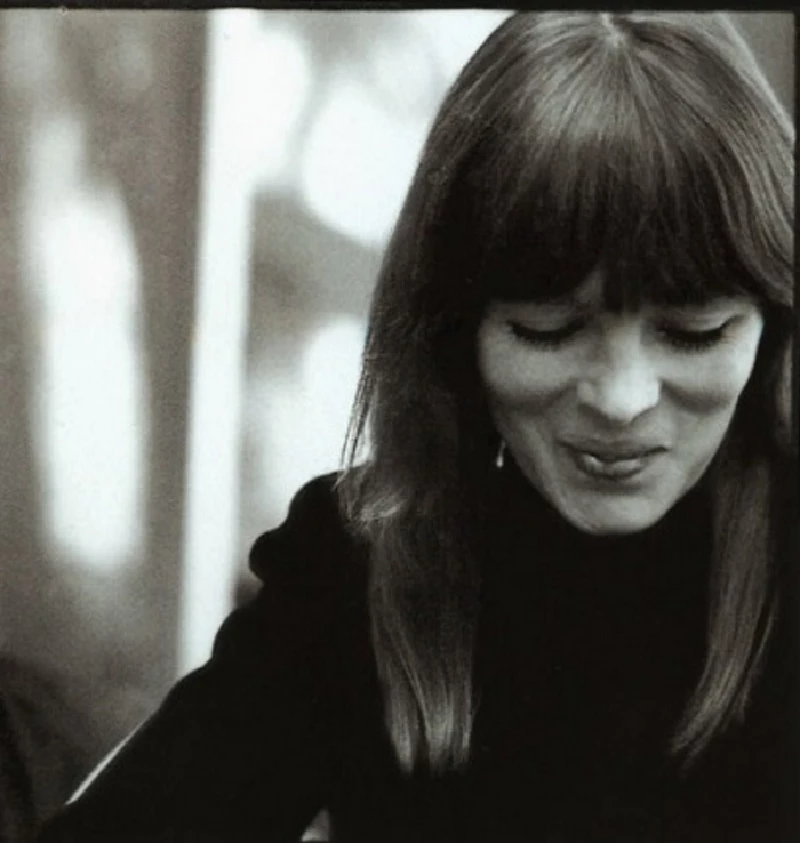
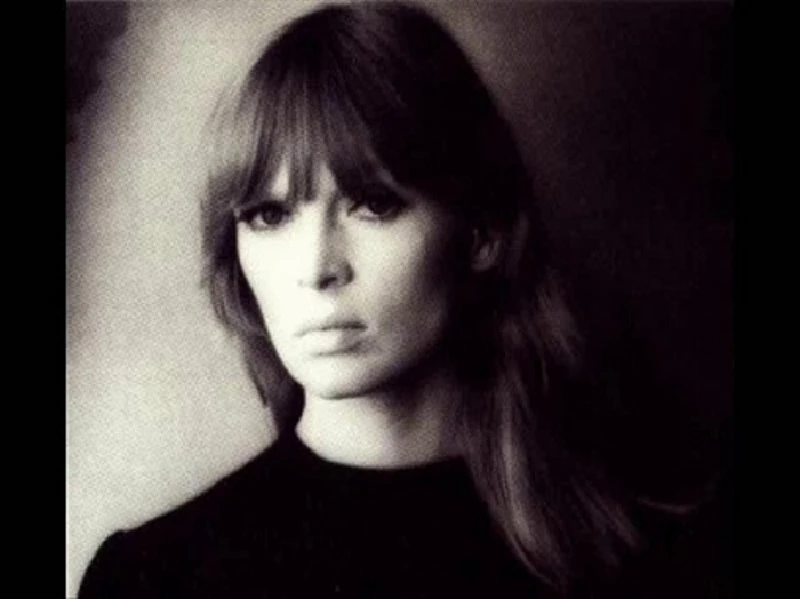
profiles |
|
Profile (2024) |
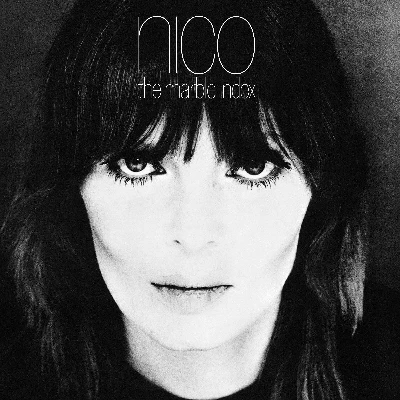
|
| Eoghan Lyng examines the late 60's/early 70's career of Nico and the recent reissue of her two albums. 'The Marble Index' and 'Desertshore'. |
reviews |
|
I'm Not Sayin' / The Last Mile (2005) |
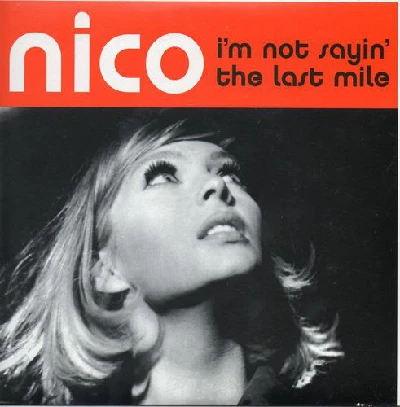
|
| Beautiful repackaging of Nico's very first single from 1965, which features both Brian Jones and Jimmy Page on guitars |
most viewed articles
current edition
Spear Of Destiny - InterviewRobert Forster - Interview
Fiona Hutchings - Interview
When Rivers Meet - Waterfront, Norwich, 29/5/2025
Carl Ewens - David Bowie 1964 to 1982 On Track: Every Album, Every Song
Brian Wilson - Ten Songs That Made Me Love...
Pistol Daisys - Waterfront, Norwich, 29/5/2025
Credits - ARC, Liverpool, 17/5.2025
Gary Numan - Berserker
Nils Petter Molvaer - El Molino, Barcelona, 24/4/2025
previous editions
Heavenly - P.U.N.K. Girl EPDwina Gibb - Interview
Boomtown Rats - Ten Songs That Made Me Love....
Oasis - Oasis, Earl's Court, London, 1995
Sound - Interview with Bi Marshall Part 1
Trudie Myerscough-Harris - Interview
Serge Gainsbourg - Ten Songs That Made Me Love...
Susie Hug - Interview
Chuck Prophet - Ten Songs That Made Me Love...
Ray Humphries - Interview
most viewed reviews
current edition
Peter Doolan - I Am a Tree Rooted to the Spot and a Snake Moves Around Me,in a CircleGarbage - Let All That We Imagine Be The Light
Little Simz - Lotus
Suzanne Vega - Flying With Angels
John McKay - Sixes and #Sevens
Only Child - Holy Ghosts
Vultures - Liz Kershaw Session 16.06.88
Eddie Chacon - Lay Low
Billy Nomates - Metalhorse
HAIM - I Quit
related articles |
|
Willard Grant Conspiracy/Big Hogg: Feature (2015 |
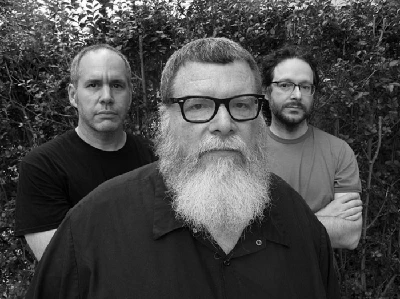
|
| We profile our next Pennyblackmusic Bands Nights which will feature the Willard Grant Conspiracy and Big Hogg at the Glad Cafe in Glasgow on Thursday 10th September and the Wee Red Bar in Edinburgh on Friday 11th September |
Pennyblackmusic Regular Contributors
Adrian Janes
Amanda J. Window
Andrew Twambley
Anthony Dhanendran
Benjamin Howarth
Cila Warncke
Daniel Cressey
Darren Aston
Dastardly
Dave Goodwin
Denzil Watson
Dominic B. Simpson
Eoghan Lyng
Fiona Hutchings
Harry Sherriff
Helen Tipping
Jamie Rowland
John Clarkson
Julie Cruickshank
Kimberly Bright
Lisa Torem
Maarten Schiethart